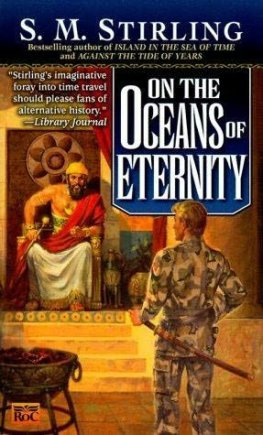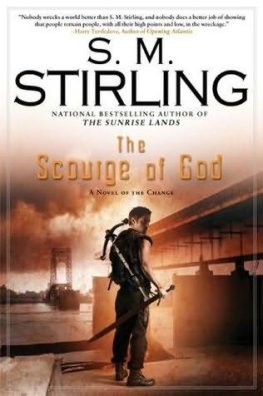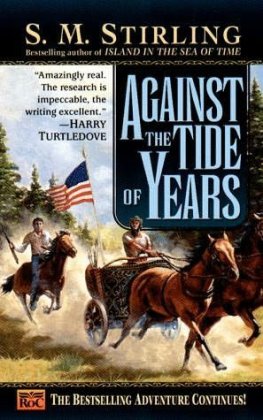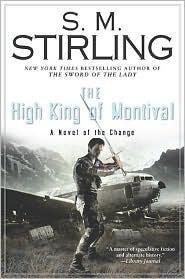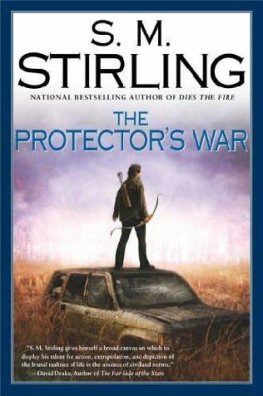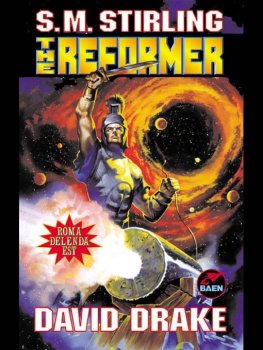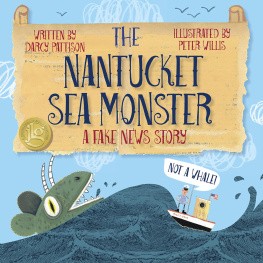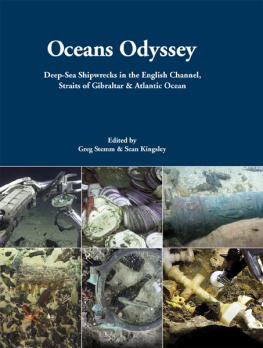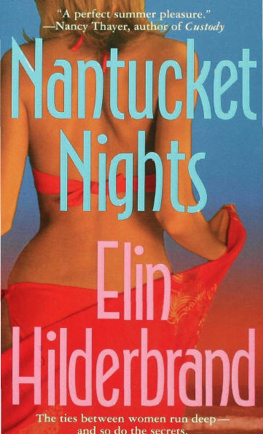S. M. Stirling
On the Oceans of Eternity
August, 1240 B.C.
August, 10 A.E.-Neayoruk, Kingdom of Great Achaea
"But Lord Cuddy, why does the interior of this furnace have to open out?" Augewas asked. "It made the construction much more complex than the earlier ones."
William Jefferson Cuddy, onetime corporal in the United States Marine Corps, onetime machine-tool operator with Sea-haven Engineering, and currently ekwetos and Master of Engineers to the High King of Great Achaea, stopped his thoughtful pacing. Production scheduling for something as big as a steel mill was a nightmare, even for this miniaturized antique especially when even the executives he had to rely on were mostly ex-peasants who could barely comprehend that "on time" didn't mean "in a while, maybe."
Even if you explain twice about the big hand and the little hand, with diagrams and a boot up the ass, Cuddy thought. A simple technical question was a relief.
"Ummmm," he said, racking his brain and looking up. The interior of the furnace was dimly lit by a shaft of light from above, more brightly by the kerosene lamp the slave behind them held. It smelled of rock and fresh brick and mortar, and the special firebrick and calcinated limestone that lined it.
"Ah, stuff gets bigger when it gets hot, right?"
The Achaean architect nodded.
"So when we put the ore and flux and coal in at the top, they're pretty cold"
Behind Augewas Cuddy could see the Achaean's son and apprentice Philhippos rolling his eyes, left hand resting proudly on the cased slide rule at his belt, and fought down a grin. The younger Greek was at the stage where you just couldn't believe the ignorance of your old man just about the age Cuddy had left home in Milwaukee to enlist in the Crotch with parental curses and a flung beer bottle following him.
Of course, Philhippos had grown up in the new world Cuddy and the other Americans of William Walker's band were making of this Bronze Age kingdom. He really did know a lot more about this stuff than his dad. Hard to remember they'd been here most of a decade now.
The young man spoke: "And this coal"-he used the English word, there being no equivalent in Mycenaean Greek-"is it better than charcoal because it burns hotter, or because it is a stonelike ore and can support more weight, or what?"
However grimly the telestai might cling to old usage on their baronies, language had grown less formal among the new elite of Great Achaea under the influence of twentieth-century English. Philhippos's father disliked that particular trend; he raised a hand, and the boy added hastily: "Lord Cuddy."
"Both, and because there's more of it," Cuddy said. "Now that we've got the mines up in Istria going, we can ship it down by sea cheaper than burning charcoal up in the hills; and besides, eventually we'd run out of trees."
He whistled, and the workers at the top let down the inspection platform. The overlords stepped onto it, and it rose smoothly up to the summit and the heavy iron-coated collar of timbers around it. From there Cuddy could look down on the raw, brawling town of Neayoruk, down to the smoke and thronging masts of the harbor enclosed by a mole running out to an island half a mile from shore, and to the hammered-metal brightness of the Laconian Gulf beyond. Sweat sprang out on his forehead and he turned gratefully to a cooling wind from the water, bringing the tang of salt, coal smoke, the hot metal of the forges whose hearths sent trails of smoke up to the azure Mediterranean sky.
"We're on schedule," he said with relief, taking in the activity below with an experienced eye.
"That is good," Augewas said. "The Wolf Lord will be pleased."
"Yeah," Cuddy said, shivering slightly at the thought of William Walker, King of Men. "That's real good."
September, 10 A.E.-Babylon, Kingdom of Kar-Duniash
October, 10 A.E.-Severn valley, Alba October, 10 A.E.-Walkeropohs, Kingdom of
Great Achaea October, 10 A.E.-Irondale, Alba
Dr. Justin Clemens-Captain, Republic of Nantucket Coast Guard (Medical Corps)-sipped at the thick sweet wine, mouth dry. It was never easy to tell someone about the Event. Much else about the Twentieth had faded, but that memory of terror remained far too fresh. He'd been a teenager then
His fiancee picked a date from the bowl on the low table that stood between her and the Islander medic. He went on:
" and then the glowing dome of light was gone, and our whole island of Nantucket was here. Back in this age. More than three thousand years before our own time."
The platform beneath them was the terraced rooftop of a section of The House That Was The Marvel of Mankind, The Center of the Land, The Shining Residence, The Dwelling of Majesty-in short, the palace of King Kashtiliash son of Shagarakti-Shuriash. It sprawled around them as a city within the greater city of Babylon; crenellated outer walls where sentries paced with the late-summer sun bright on their steel and bronze, whitewashed adobe and colored brick and tile, courtyards, gardens, audience halls, workshops, storerooms, hareem, barracks, shrines, and archives, faint sounds of chanting, talk, feet, wheels, hooves, a whiff of cooking and a stale draft of canal-water
The two doctors sat on cushions beneath an awning, amid potted plants and flowers and dwarf trees brought from all over these lands.
Justin watched the woman as she frowned and thought, noticing again how her face turned beautiful with the mind within, despite thinness, big hooked nose, receding chin, and incipient mustache. The huge dark eyes had depths to them. It made him painfully aware of his own round-faced near-plumpness, kept under control only by the necessities of campaigning and twelve-hour workdays.
Here's hoping she gets it, went through him. So many just can't grasp the concept. Plain bewildered, or lost in superstitious terror. But Azzu-ena was extremely bright, and practical, to boot. Her doctor-father had had no sons, and brought his daughter up to his trade, which was unusual but not completely outlandish in Babylon. These archaic-Semitic peoples weren't what you'd call feminists by a long shot, but they weren't as pathological about it as many of their descendants would would have, in the original history become.
Well, there's the Assyrians, he reminded himself. They shut women up in purdah like Afghans in the twentieth. But they're just nasty in every conceivable way.
Of course, asu was not a very prestigious occupation among the Babylonians regardless of whether the doctor was a man or a woman. Medicine and surgery were just treating symptoms, to their way of thinking; the ashipu, the sorcerer/witch doctor, had the real power.
As one of the physicians on call for the King's women, Azzu-ena had been given the run of the Palace after her father died, including its huge library of clay tablets; she had talked much with foreigners, here where merchants and embassies from all the known world sought the court of the King; otherwise, she had been left mostly to herself and her thoughts.
"I see," she said at last. "Everything you have shown and told me in this past year has been true, so this must be also. I knew when I saw you cut the child from the womb-and yet the mother lived!-that your arts must be beyond ours"
The doctor winced a little. Someone as intelligent as Azzu-ena would think about the implications of the Event:
Your world is dead three thousand years. In most places that means that nothing

